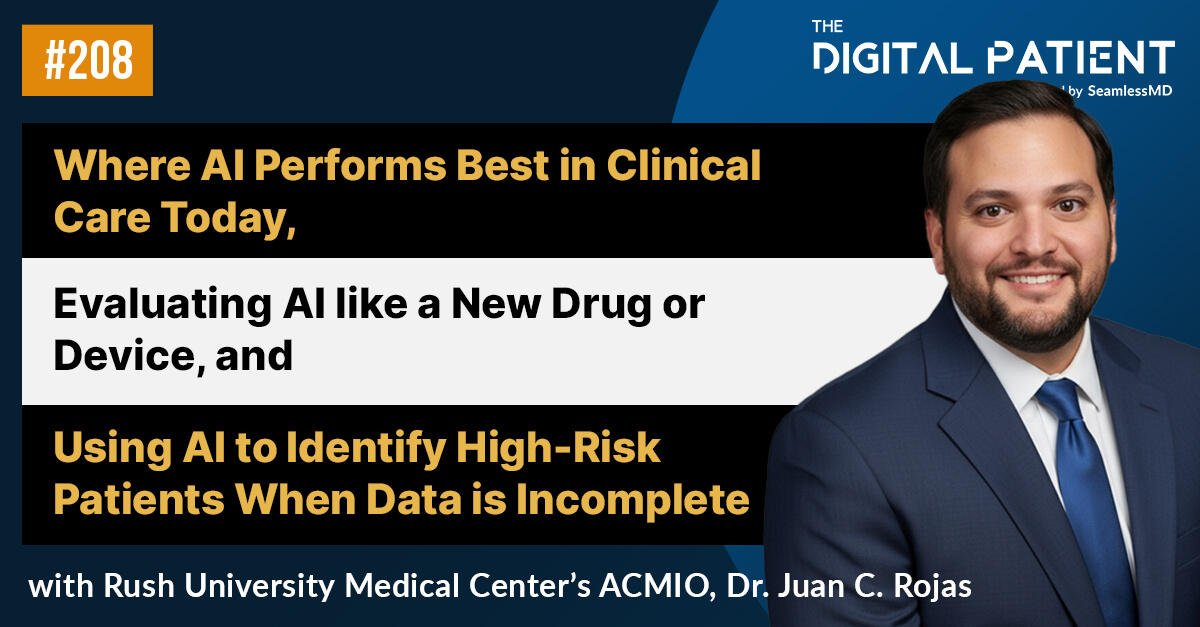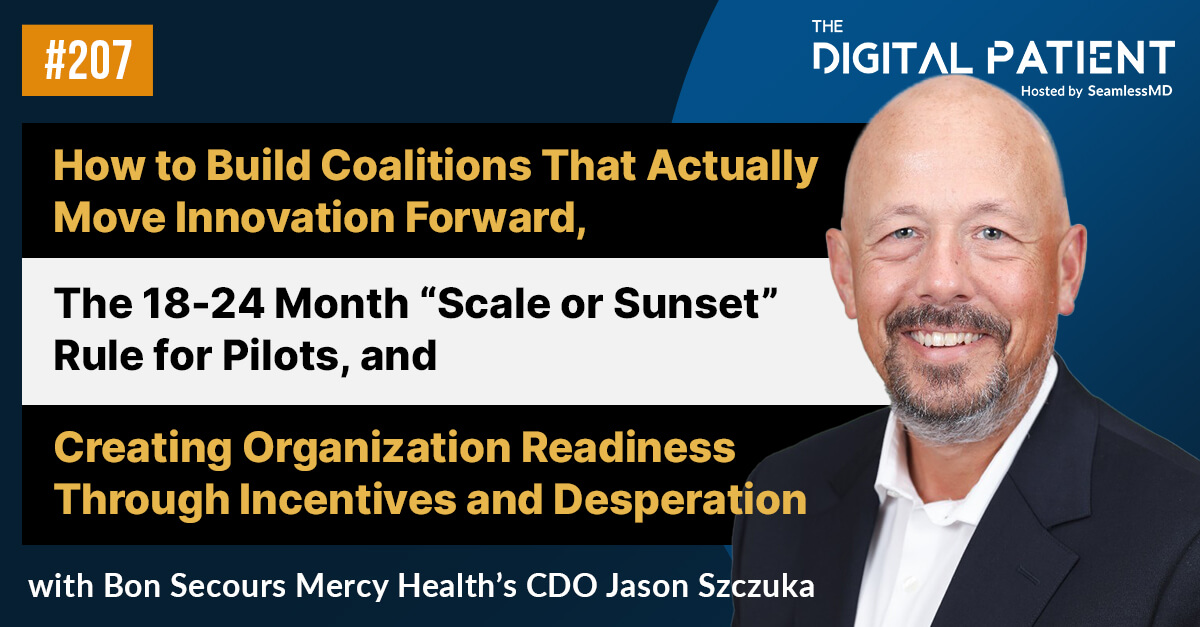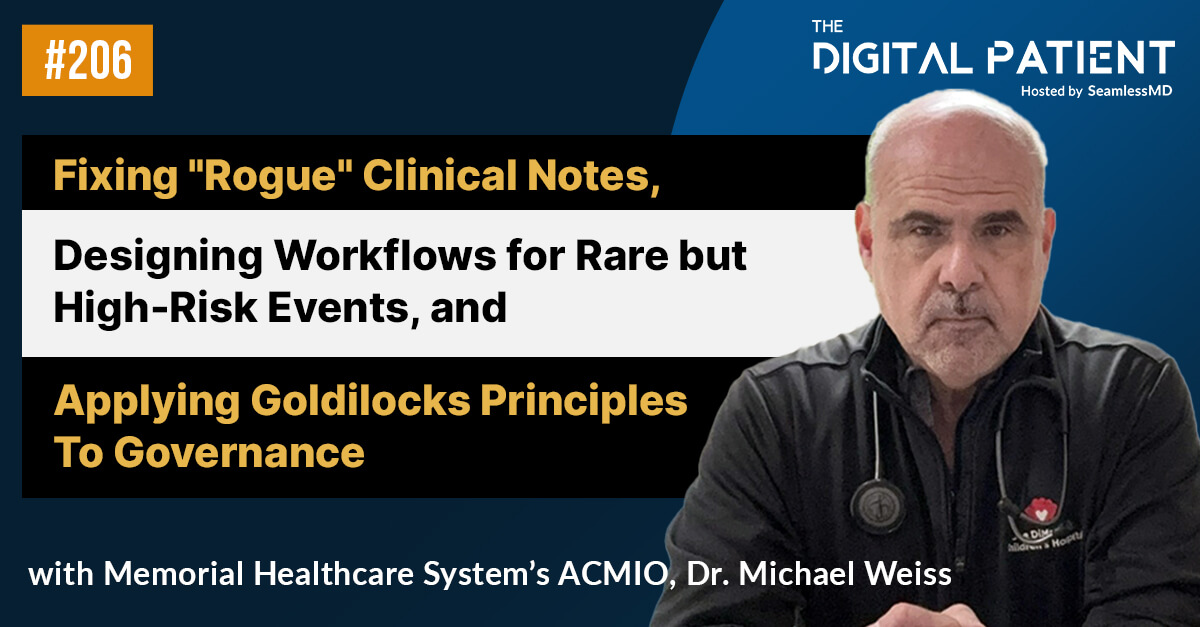Subscribe on: | | | | |
Video:
In this episode of the °µÍřĘÓƵ Podcast, Dr. Joshua Liu, Co-founder & CEO at °µÍřĘÓƵ, and marketing colleague, Alan Sardana, chat with Daniela Faykoo-Martinez, RD, MHSc, Patient Education Specialist at °µÍřĘÓƵ about using digital patient engagement for urology surgery. See the full show notes below for details.
Guest(s): Ms. Daniela Faykoo-Martinez, RD, MHSc, Patient Education Specialist at °µÍřĘÓƵ
Dr. Joshua Liu (), Co-founder & CEO at °µÍřĘÓƵ
Episode 18 – Show notes:
[00:07] Introducing Ms. Daniela Faykoo-Martinez, RD, MHSc, Patient Education Specialist at °µÍřĘÓƵ who designs digital care plans for urology surgery such as prostatectomy and cystectomy;
[02:46] How Ms. Faykoo-Martinezinterviewed urology surgery patients before designing the digital care plan forurology surgery and discovered important topics to cover such as post-surgerycare support, incontinence, and male sexual health;
[04:36] How digitalpatient engagement allows for caregivers (typically family members) to followalong with the patient for support;
[06:40] Dr. Liu describesa precursor app to °µÍřĘÓƵ, where patients could fill out intelligentquestionnaires before their visit to streamline the initial surgeon-patientvisit;
[07:23] Why patients oftenprefer to answer questions electronically rather than in person when it comesto sensitive questions such as sexual dysfunction and mental health, and how°µÍřĘÓƵ preempts certain education topics to help patients feel more normal;
[09:11] How Ms.Faykoo-Martinez leveraged °µÍřĘÓƵ’s “branching logic” to include specific “bite-sized”tasks and education unique for each urology patient such as catheter-use whichwould only be shown to cystectomy patients with a catheter or neo-bladdereducation for neo-bladder patients, etc.;
[13:18] Why traditionaleducation booklets are ineffective compared to digital patient engagement whereeducation, reminders, and tasks are systematically delivered to preempt certainconcerns and to ensure patients get the right education at the right time;
[15:43] How °µÍřĘÓƵ addressespost-surgery dehydration via preemptive reminders and education, and tracks dailywater intake and signs of dehydration to prevent readmission;
[17:24] How °µÍřĘÓƵ’s daily“health-check” works by probing patient-reported symptoms and deliveringfeedback based on the patients’ input that either encourages self-management viaeducation or prompts patients to reach out to a specific person for medicalassistance if required;
[19:21] Why °µÍřĘÓƵ promptspatients to contact their surgery team before going to the ER so the patientcan potentially circumvent the ER wait times and so the surgery team canprovide context for the patient;
[20:56] How surgery teams can use °µÍřĘÓƵ to collect and review patient information in real-time such as compliance, symptoms, and recovery data, or can “take a back seat” and review the patient-reported outcomes at a later date to identify quality improvement opportunities such as root causes for readmission;
[22:54] Why °µÍřĘÓƵ ismore than “just an app for patients” due to the amount of granular patient databeing collected for the surgery teams to use for continuous improvements in patientexperience and health outcomes;
[23:36] Lightning Round /Fast 5 Questions:
Q: What is something you believe that others in healthcare might think is crazy?
A: That there is a place for non-traditional medicine to co-exist alongside traditional western medicine.
Q: How has a failure or apparent failure set you up for later success? Do you have a favorite failure of yours?
A: When I was younger, I was interested in real estate but decided to pursue schooling instead of working full time in real estate. In 2017, after missing the Toronto real-estate bubble, I felt like I missed an opportunity…but ultimately pursuing additional education has really set me up for a successful career which will really pick up in the long term.
Q: Invisibility or super-strength?
A: Obviously super strength!
Q: Favorite movie?
A: “The Holiday” with Jack Black, Cameron Diaz and Jude Law
Q: If you could have a gigantic billboard anywhere, with anything on it, what would it say and why?
A: It would have to be something about the environment! I have a deep-rooted passion for the environment, and I want more people to do stuff about it! Probably something to do with the latest Canada-Brazil deal on non-ethically sourced beef.
.svg)





